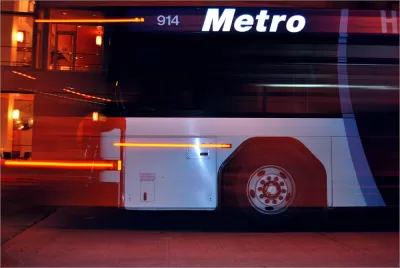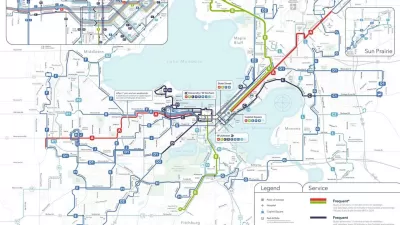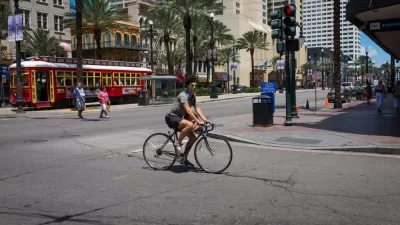Transit service in the Wisconsin State Capital has been redesigned on a high-frequency grid.

The Madison City Council this week approved a controversial Metro Transit network redesign plan that promises to increase transit frequencies on specific routes while also decreasing service and reducing the number of stoops around the city.
Writing for the Wisconsin State Journal, Dean Mosiman reports that the changes result in “perhaps the largest changes ever to the city's bus system” even after the City Council included 17 amendments to the plan on the way to approval.
“The redesign and amendments still envision BRT — a high-frequency, high-capacity, limited-stop service that would run on city streets and dedicated lanes with special stations — as the backbone of the new network, which is a separate initiative,” according to Mosiman. “The initial 15.5-mile, east-to-west BRT route will run roughly from East Towne to West Towne, while a future route will run from north to south.”
The plan must still complete a federal Title VI equity analysis before going into effect, according to the article.
The source article, linked below, includes details of a package of rezonings approved by the Madison City Council on the same day, unrelated to the transit system redesign.
FULL STORY: Madison City Council approves sweeping Metro Transit network redesign

Planetizen Federal Action Tracker
A weekly monitor of how Trump’s orders and actions are impacting planners and planning in America.

Map: Where Senate Republicans Want to Sell Your Public Lands
For public land advocates, the Senate Republicans’ proposal to sell millions of acres of public land in the West is “the biggest fight of their careers.”

Restaurant Patios Were a Pandemic Win — Why Were They so Hard to Keep?
Social distancing requirements and changes in travel patterns prompted cities to pilot new uses for street and sidewalk space. Then it got complicated.

Maui's Vacation Rental Debate Turns Ugly
Verbal attacks, misinformation campaigns and fistfights plague a high-stakes debate to convert thousands of vacation rentals into long-term housing.

San Francisco Suspends Traffic Calming Amidst Record Deaths
Citing “a challenging fiscal landscape,” the city will cease the program on the heels of 42 traffic deaths, including 24 pedestrians.

California Homeless Arrests, Citations Spike After Ruling
An investigation reveals that anti-homeless actions increased up to 500% after Grants Pass v. Johnson — even in cities claiming no policy change.
Urban Design for Planners 1: Software Tools
This six-course series explores essential urban design concepts using open source software and equips planners with the tools they need to participate fully in the urban design process.
Planning for Universal Design
Learn the tools for implementing Universal Design in planning regulations.
Heyer Gruel & Associates PA
JM Goldson LLC
Custer County Colorado
City of Camden Redevelopment Agency
City of Astoria
Transportation Research & Education Center (TREC) at Portland State University
Camden Redevelopment Agency
City of Claremont
Municipality of Princeton (NJ)





























